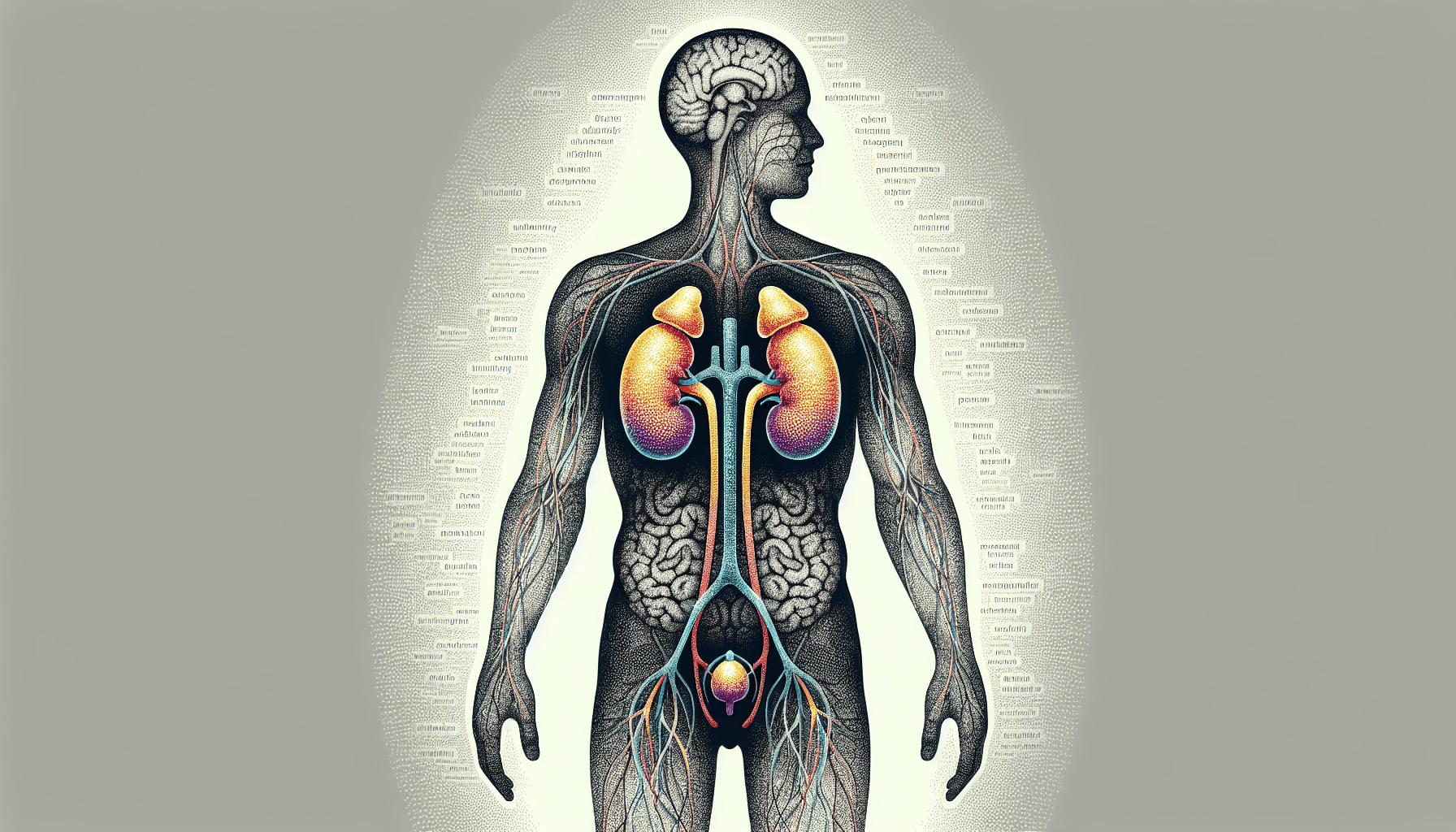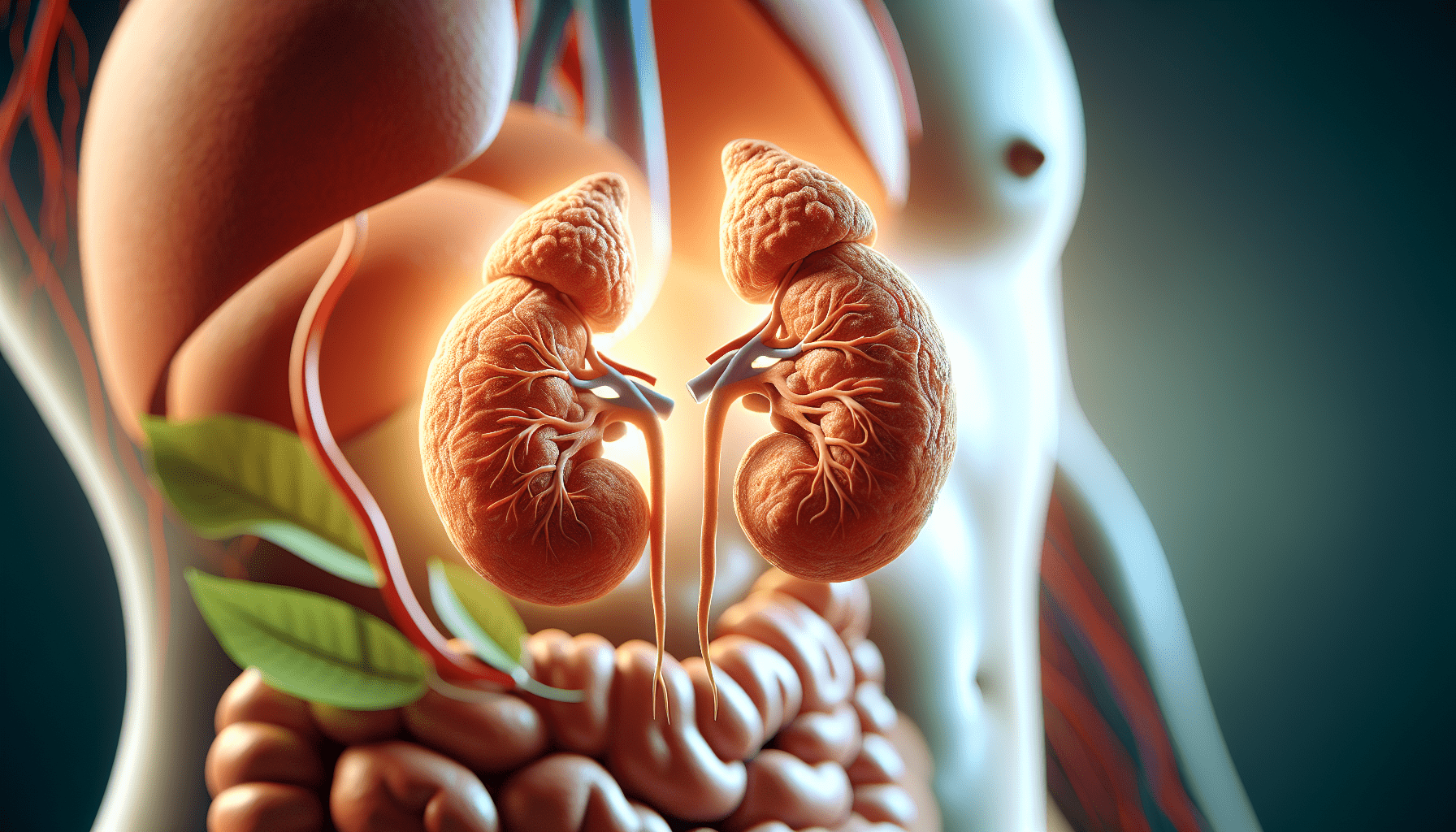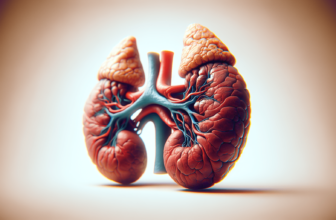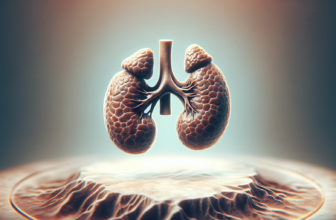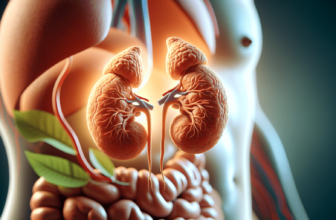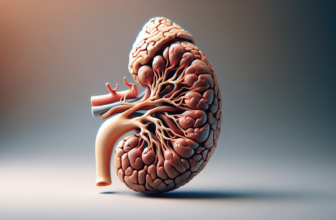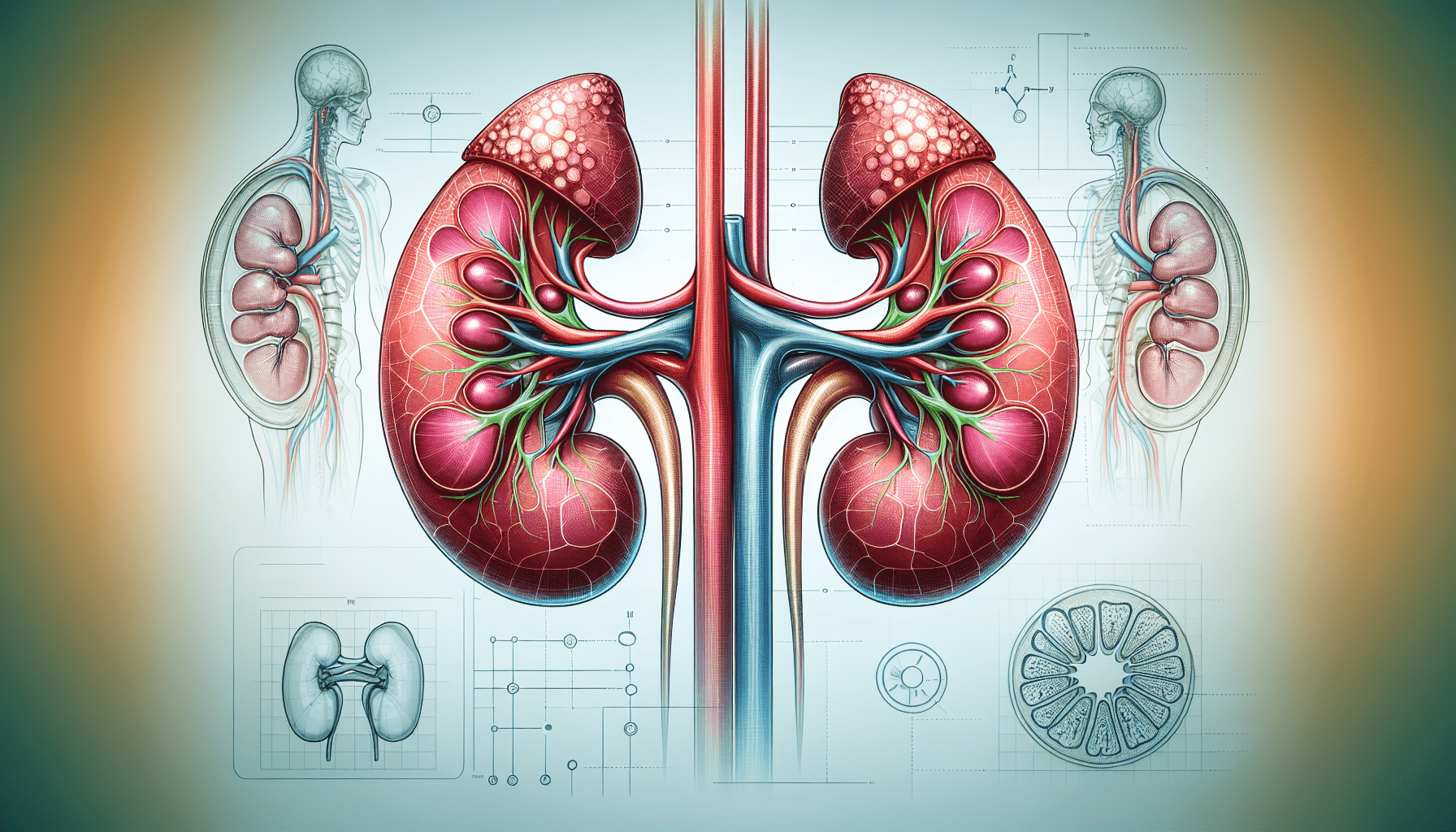
Have you ever wondered how your body responds to stress or maintains balance? One major player in this process is the adrenal glands. Let’s unpack what these tiny but powerful glands do and why they are essential for your health.
What Are the Adrenal Glands?
The adrenal glands are small, triangular-shaped glands located on top of each kidney. Despite their small size, they have a significant impact on your body’s overall functioning. They produce hormones that help regulate metabolism, immune response, blood pressure, and stress responses. Understanding the role of these glands can give you insight into how your body deals with various situations.
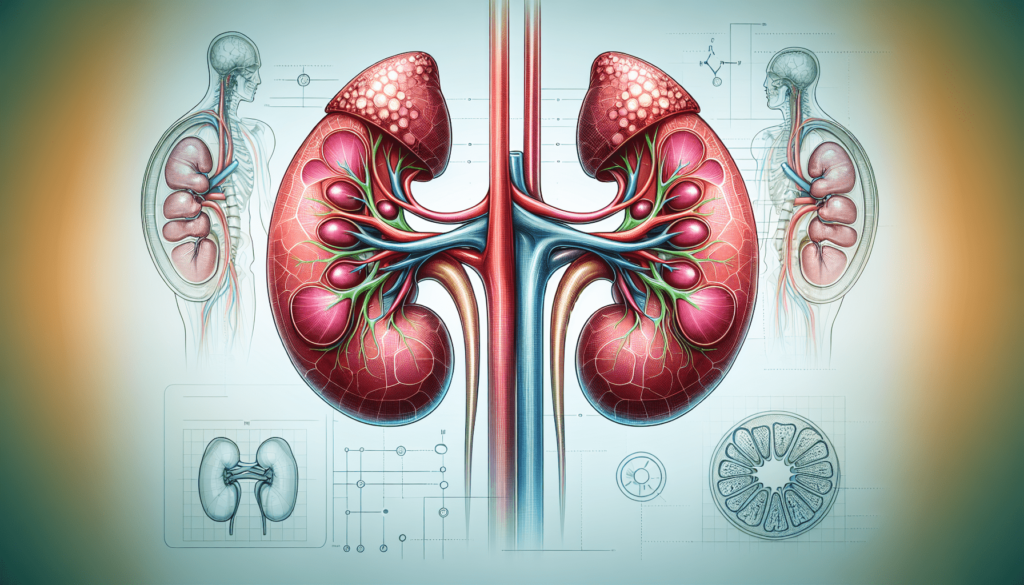
Structure of the Adrenal Glands
Each adrenal gland consists of two main parts: the adrenal cortex and the adrenal medulla. These sections produce different hormones that serve various functions.
Adrenal Cortex
The outer part of the adrenal gland, known as the adrenal cortex, produces three main types of hormones:
- Glucocorticoids: These hormones help regulate metabolism and immune response. The most well-known glucocorticoid is cortisol, often referred to as the “stress hormone.”
- Mineralocorticoids: This group of hormones helps control blood pressure by managing the balance of salts and water in the body. Aldosterone is a primary mineralocorticoid that supports these functions.
- Androgens: Although present in smaller amounts, these hormones contribute to the development of male characteristics and influence the overall hormonal balance in both men and women.
Adrenal Medulla
The inner part of the adrenal gland is called the adrenal medulla. It produces catecholamines, which include:
- Epinephrine (Adrenaline): This hormone quickly prepares your body for a ‘fight-or-flight’ response, increasing heart rate, blood flow, and energy production.
- Norepinephrine: Similar to epinephrine, norepinephrine helps sustain blood pressure and prepares your body for action during stress.
Functions of the Adrenal Glands
The adrenal glands carry out various essential functions that impact your physical and emotional well-being.
Stress Response
One of the most critical roles of the adrenal glands is to respond to stress. When you face a stressful situation, the brain signals the adrenal glands to release epinephrine and norepinephrine. This cascade of hormones prepares your body to react quickly, whether it’s fighting off a threat or fleeing from danger.
Regulation of Metabolism
Cortisol, the primary glucocorticoid, plays a vital role in metabolism. It helps to:
- Increase blood sugar levels by promoting gluconeogenesis.
- Aid in fat and protein metabolism, serving as an energy source during prolonged stress.
- Maintain energy balance and respond effectively to fluctuations in food intake.
Blood Pressure Control
The adrenal glands also help regulate blood pressure through the action of aldosterone. This mineralocorticoid signals the kidneys to retain sodium and water, which helps maintain blood volume and blood pressure. A balanced blood pressure is crucial for your overall cardiovascular health.
Immune System Regulation
Cortisol has a well-documented impact on your immune system. While it helps control inflammation and immune responses, prolonged high levels of cortisol can suppress immune function, making you more susceptible to infections.
Disorders Related to Adrenal Glands
When adrenal glands function improperly, it can lead to several health conditions. Understanding these disorders can help you recognize symptoms and seek appropriate treatment.
Adrenal Insufficiency (Addison’s Disease)
Adrenal insufficiency occurs when the adrenal glands do not produce sufficient corticosteroids. Common symptoms include:
- Fatigue
- Muscle weakness
- Low blood pressure
- Weight loss
- Skin changes (darkening or discoloration)
If you suspect this condition, a healthcare professional can conduct tests to measure hormone levels and recommend treatments.
Cushing’s Syndrome
Cushing’s syndrome results from excessive cortisol production. It can arise from tumors in the pituitary gland or adrenal glands. Symptoms may include:
- Weight gain, especially around the abdomen and face
- Skin changes (bruises and stretch marks)
- High blood pressure
- Mood swings
Diagnosing Cushing’s typically involves a combination of blood tests and imaging studies.
Adrenal Tumors
Sometimes, benign or malignant tumors can form in the adrenal glands. While many tumors do not produce symptoms, some can lead to an overproduction of hormones. Symptoms may vary depending on the type and function of the tumor.
Lifestyle Factors That Influence Adrenal Health
Maintaining a balanced lifestyle can support the proper functioning of your adrenal glands. Here’s what you can do to promote adrenal health.
Nutrition
Eating a well-balanced diet can positively impact your adrenal function. Focus on:
- Whole Foods: Foods rich in vitamins and minerals support hormone production.
- Healthy Fats: Incorporate sources of omega-3 fatty acids, such as fish and flaxseeds.
- Reduced Sugar Intake: Minimize refined sugars that can cause energy spikes and drops.
Stress Management
Chronic stress can lead to adrenal fatigue. To counter this, consider integrating stress-reduction techniques such as:
- Mindfulness and Meditation: These practices promote a state of relaxation and can lower cortisol levels.
- Regular Exercise: Moderate exercise can help reduce stress and improve mood.
- Sleep Hygiene: Prioritizing quality sleep can support adrenal recovery.
Herbal Supplements
Some herbs are believed to aid adrenal health, including:
| Herb | Potential Benefits |
|---|---|
| Ashwagandha | May help reduce stress and anxiety |
| Rhodiola Rosea | Could enhance energy and cognitive function |
| Licorice Root | Often used to support cortisol balance |
Before starting any supplements, consult with a healthcare provider to ensure they are appropriate for you.
Recognizing Adrenal Fatigue
Adrenal fatigue is a term used to describe a set of symptoms thought to be caused by chronic stress and the overworking of the adrenal glands. Symptoms can include:
- Chronic fatigue
- Sleep disturbances
- Difficulty concentrating
- Craving salty or sweet foods
While the concept of adrenal fatigue is somewhat controversial in the medical field, recognizing these signs can prompt you to take steps toward better health.
When to Seek Professional Guidance
If you suspect you have an issue related to your adrenal glands, seeking professional guidance is essential. Healthcare providers can perform appropriate tests to evaluate hormone levels and determine the underlying cause of your symptoms.
Testing for Adrenal Function
Several tests can assess the adrenal glands’ performance, including:
- Blood Tests: Measuring cortisol levels at specific times can indicate whether the glands are functioning properly.
- 24-Hour Urine Test: This test evaluates hormone levels collected over an entire day to assess adrenal production.
- Stimulation Tests: This involves measuring how the adrenal glands respond to hormones produced by the pituitary gland.
Conclusion
Understanding your adrenal glands and their functions can empower you to take control of your health. By recognizing the signs of potential issues, managing stress, and supporting your body through nutrition and lifestyle changes, you can help maintain optimal adrenal function. Keep in mind that while these glands are small, their impact on your overall well-being is profound. Your health is in your hands, and with the right knowledge and approach, you can support your adrenals effectively.

